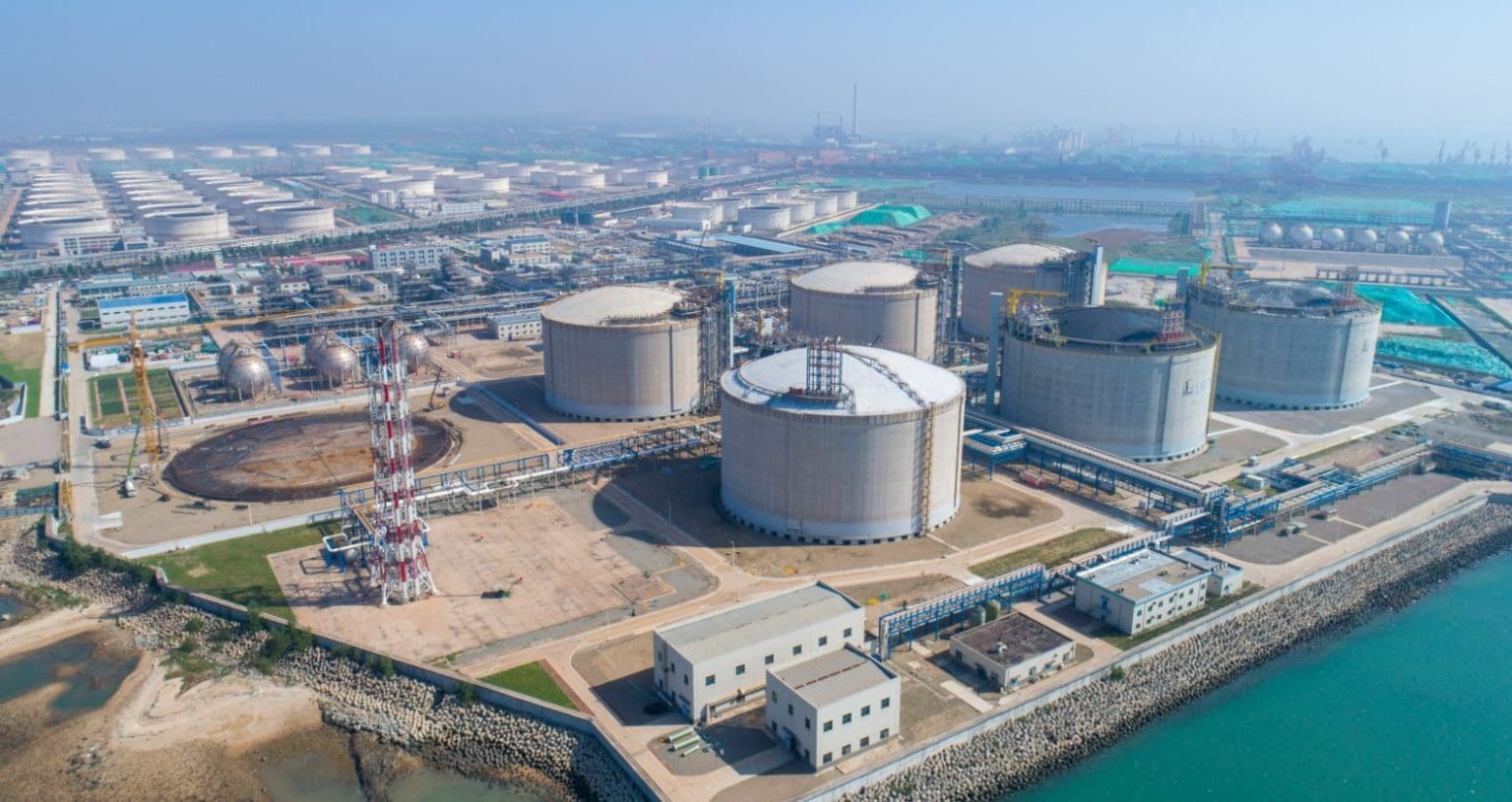Taiwan's Nuclear Phase-Out: The Rise Of LNG Imports

Table of Contents
The Rationale Behind Taiwan's Nuclear Phase-Out
The decision to phase out nuclear power in Taiwan is a complex issue rooted in a confluence of public opinion, safety concerns, and political factors.
Public Opinion and Anti-Nuclear Sentiment
A long history of anti-nuclear protests and public safety concerns has significantly influenced Taiwan's energy policy.
- The 1979 Three Mile Island accident in the US, and the 1986 Chernobyl disaster, significantly impacted public perception of nuclear power safety.
- Numerous anti-nuclear protests have taken place throughout Taiwan's history, culminating in widespread public opposition to nuclear power plants.
- Public opinion polls consistently reveal a strong preference for phasing out nuclear power in favor of alternative energy sources. Recent surveys show that over 70% of the Taiwanese public favors a nuclear-free future.
Safety Concerns and Post-Fukushima Impacts
The 2011 Fukushima Daiichi nuclear disaster in Japan served as a powerful catalyst for accelerating Taiwan's nuclear phase-out.
- The Fukushima incident heightened public anxieties about the safety of Taiwan's aging nuclear power plants.
- Concerns over earthquake vulnerability and potential tsunami risks further fueled the debate surrounding nuclear power's suitability for Taiwan's geographical location.
- Subsequent government safety assessments and reports, while not explicitly calling for immediate closure, contributed to the growing momentum for a nuclear-free future.
Political Factors and Policy Decisions
The political landscape has played a crucial role in shaping Taiwan's nuclear phase-out policy.
- Different political parties have held varying stances on nuclear power, with a strong consensus emerging in recent years in favor of phasing it out.
- Government policies and regulations, including specific timelines for decommissioning nuclear plants, have been instrumental in guiding the transition.
- The interplay between public pressure, scientific assessments, and political will has ultimately determined the pace and direction of the phase-out.
The Rise of LNG as the Primary Replacement
With the decline of nuclear power, Taiwan has significantly increased its reliance on LNG imports to meet its energy demands.
Increased LNG Import Infrastructure
To accommodate the rising demand for LNG, Taiwan has undertaken a substantial expansion of its import infrastructure.
- New LNG import terminals and storage facilities have been constructed, significantly boosting the country's import capacity.
- Major projects like the Taichung and other LNG terminal expansions have increased storage and regasification capabilities.
- Billions of dollars have been invested in this infrastructure development to ensure a reliable supply of LNG.
Geopolitical Implications of LNG Reliance
Taiwan's increased dependence on LNG imports introduces new geopolitical considerations.
- The nation's reliance on international LNG suppliers creates vulnerabilities to price fluctuations and potential supply disruptions.
- The relationship between global LNG prices and Taiwan's energy costs is increasingly significant.
- Diversifying LNG sources and securing long-term supply contracts are crucial for mitigating potential risks.
Environmental Considerations of LNG Imports
The increased reliance on LNG also raises environmental concerns.
- LNG production, transportation, and combustion contribute to greenhouse gas emissions, although it’s considered a less carbon-intensive fuel source than coal.
- Efforts are underway to mitigate the environmental impact of LNG imports through carbon capture and storage technologies and investments in renewable energy.
- The carbon footprint of LNG remains a key consideration in Taiwan's broader efforts to reduce its overall carbon emissions.
The Role of Renewable Energy in Taiwan's Energy Transition
Renewable energy sources are playing an increasingly vital role in Taiwan's energy transition.
Government Initiatives to Promote Renewable Energy
The Taiwanese government has launched various initiatives to bolster renewable energy development.
- Substantial government funding and incentives are provided to encourage the adoption of solar, wind, and other renewable energy technologies.
- Ambitious targets have been set for renewable energy generation capacity, aiming for a significant share of the national energy mix.
- Large-scale solar farms and offshore wind farms are under development, contributing to the country's renewable energy portfolio.
Challenges and Opportunities for Renewable Energy Development
Despite significant progress, challenges remain in integrating renewable energy into Taiwan's energy grid.
- Limited land availability poses a constraint for large-scale solar and wind power projects.
- Integrating intermittent renewable energy sources into the grid requires sophisticated grid management and storage solutions.
- Technological advancements and innovation are crucial for overcoming these limitations and unlocking the full potential of renewable energy in Taiwan.
Conclusion: Navigating the Future of Taiwan's Energy Landscape After the Nuclear Phase-Out
Taiwan's nuclear phase-out marks a significant shift in its energy landscape, necessitating a strategic approach to managing the transition. The increase in LNG imports provides a necessary bridge, but diversification of energy sources and a strong focus on renewable energy are vital for long-term energy security and environmental sustainability. Understanding Taiwan's nuclear phase-out, analyzing LNG import strategies, and exploring renewable energy solutions are crucial steps in securing a sustainable and resilient energy future for the nation. We encourage you to delve deeper into these topics to gain a comprehensive understanding of this critical period in Taiwan's energy history.

Featured Posts
-
 Fp Video Navigating Tariff Turbulence At Home And Abroad
May 20, 2025
Fp Video Navigating Tariff Turbulence At Home And Abroad
May 20, 2025 -
 Second Child For Jennifer Lawrence And Cooke Maroney A Family Grows
May 20, 2025
Second Child For Jennifer Lawrence And Cooke Maroney A Family Grows
May 20, 2025 -
 Robin Roberts Gma Announcement A New Family Member
May 20, 2025
Robin Roberts Gma Announcement A New Family Member
May 20, 2025 -
 Man Utd Analyzing Amorims Latest Signing
May 20, 2025
Man Utd Analyzing Amorims Latest Signing
May 20, 2025 -
 Atkinsrealis Droit Des Affaires Expertise Et Conseil Juridique
May 20, 2025
Atkinsrealis Droit Des Affaires Expertise Et Conseil Juridique
May 20, 2025
